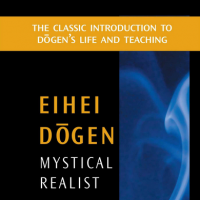Eihei Dogen (1200-53), founder of the Soto school of Zen Buddhism, is a key figure in the intellectual history of Japan, but for many centuries his work was not widely read. This changed in 1926, when the publication of Watsuji Tetsuro's "Shamon Dogen" ("The Monk Dogen") reframed him as a philosopher in the contemporary sense and inspired a new interest in Dogen's writings.
Hee-Jin Kim's "Eihei Dogen: Mystical Realist," originally published in 1975, was a landmark text in English-language Dogen studies. Translations of the Zen master's writings and closer examinations of his life and thinking have proliferated in the years since (the introduction to this new edition contains a helpful list of major examples), but Kim's work is still an excellent single-volume overview.
The first part of the book surveys Dogen's early involvement with Buddhism, including some almost novelistic descriptions of his experiences in China. This is followed by a long and meticulous examination of the doctrines Dogen began to expound after his return to Japan in 1227. The book closes with a thoughtful evaluation of his approach to monasticism toward the end of his life.
Throughout, Kim allows Dogen to speak for himself: Countless quotations illustrate not only the finer points of Dogen's philosophy but also his startling rhetorical technique.
Read archived reviews of Japanese classics at jtimes.jp/essential.



















With your current subscription plan you can comment on stories. However, before writing your first comment, please create a display name in the Profile section of your subscriber account page.